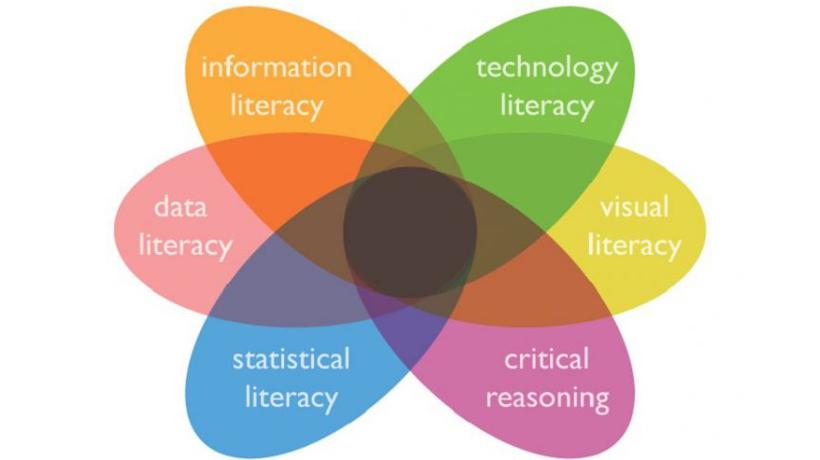Deepen Your Human Skills And Empower Others Too
As machines become increasingly accurate and intelligent, we humans will need to sharpen our skills. One of your primary responsibilities as a Learning and Development leader is to sharpen your skill and ensure that you empower the workforce to develop the four skills critical to thriving in 2030. I have compiled a series of articles titled "eLearning Skills 2030" to explore the essential skills to help you future-proof your career and lead your team. This article explores metaverse, why it is critical, and what actionable steps you can take today to learn more about it.
What Is The Metaverse?
The term "metaverse" was first coined by Neil Stephenson in his 1992 book Snow Crash, where in the real world, the protagonist delivers pizza, but in the metaverse, he is a warrior prince. In Harvard Business Review, Mark Purdy defines the metaverse as "a network of 3D virtual worlds where people interact, do business, and forge social connections through their virtual avatars in a virtual version of today's internet." In line with Ray Oldenburg's definition of a "third place," the metaverse, whose etymology means "a place beyond," can be thought of as a place that combines the virtual and the live worlds, and is accessed beyond screens and through Virtual Reality (VR) and Augmented Reality (AR) headsets and holograms.
Eric Ravenscraft contends in his article the metaverse as a term is difficult to define because it is still evolving. While several video games such as Fortnite, World of Warcraft, and Minecraft have built virtual worlds where people interact and sell goods, the metaverse we are discussing here is bigger and broader. Several organizations, including Microsoft, Google, Nvidia, and others, are investing heavily in the metaverse to create virtual worlds that approximate our universe. Temple University Senior Fellow Kathy Hirsch-Pasek states that the metaverse will transform education and Learning and Development, and propose a path for bringing the best educational practices into the metaverse.
Why Is The Metaverse Important?
At this time, the metaverse infrastructure is primarily still being developed, and we cannot definitively state how vital the metaverse is today. According to Purdy, the metaverse could provide a new level of social connectivity, mobility, and collaboration. He predicts that the metaverse will reshape the world of work in several ways, including new immersive forms of team collaboration, new digital, Artificial-Intelligence-enabled colleagues, and completely new enterprises and job roles resulting from virtualization and gamification technologies. Additionally, the metaverse may reveal new opportunities to reimagine the workplace with elements of adventure, spontaneity, and surprise.
Metaverse technologies could also revolutionize research and training, reducing the time it takes to learn new skills and develop them. While the metaverse is still new, it could provide organizations the opportunity to rebalance hybrid and remote work by reimagining the elements of interactivity, and fun of team-based working and learning, while maintaining flexible, productive, and convenient work modalities.
What Can You Do Now To Navigate The Evolving Metaverse?
2030 is not that far away. As changes, threats, and digitization accelerate, you must deepen your human skills, including thinking differently, managing yourself, managing others, and leveraging digital. Check out the various articles under this series to dive deeper into these four categories and explore strategies and tactics to build upskilling programs that inspire and empower your team to thrive in 2030. You can also explore the evolving metaverse scenarios, including reimagining your workplace in 3D and exploring faster learning.
Reimagine 3D Workplaces
As organizations are grappling with the return to the office and hybrid workplaces, metaverse startups such as NextMeet offer an immersive platform where virtual offices and meeting rooms can be designed and visited by employee digital avatars in real time, and help desks can be accessed by digital avatars, presentations can be made live from the podium, and networking lounges can be used by employees to socialize. In this metaverse environment, you can use a computer or mobile device to enter the virtual environment, select or design your avatar, and navigate the space using keyboard buttons: arrow keys to move around, and double click to sit down. To reimagine a 3D workplace, you and your team can ask questions in line with how this scenario works in your organization and consider the challenges and opportunities presented by the metaverse.
Explore Faster Learning
While some universities have used VR and AR in classrooms already—many quite successfully, such as Stanford—learning in the metaverse can evolve and get faster using virtual coaches and mentors that are AI-powered bots personalized to the needs of each learner. These bots can pop up whenever the learner stumbles, needs a nudge, or wants to expand or dig deeper into a topic. VR and 3D holograms of human body parts have been used in medical training. Students can view a human heart in 3D and discuss how to address the patient's issue.
Additionally, medical lab technicians are using VR to learn virtually how to operate lab testing machines and how to address challenges on the job. The United States Navy has been using "digital twins" on aircraft carriers, enabling navy technicians to fix broken parts faster by communicating virtually with their counterparts on land on how to resolve the issue. By using digital twins of ships, the Navy can perform repairs and maintenance on them while at sea, maintaining combat systems' readiness at all times. How would the metaverse impact learning in your organization?
Conclusion
To navigate these changes, you need to deepen your human skills and stay abreast of how the metaverse may impact your organization with 3D workplaces, AI-powered digital colleagues, and faster learning. As a leader, you also have a responsibility to empower your team to learn the key elements relating to the metaverse and its evolution so that they can thrive and lead in 2030 and beyond.









